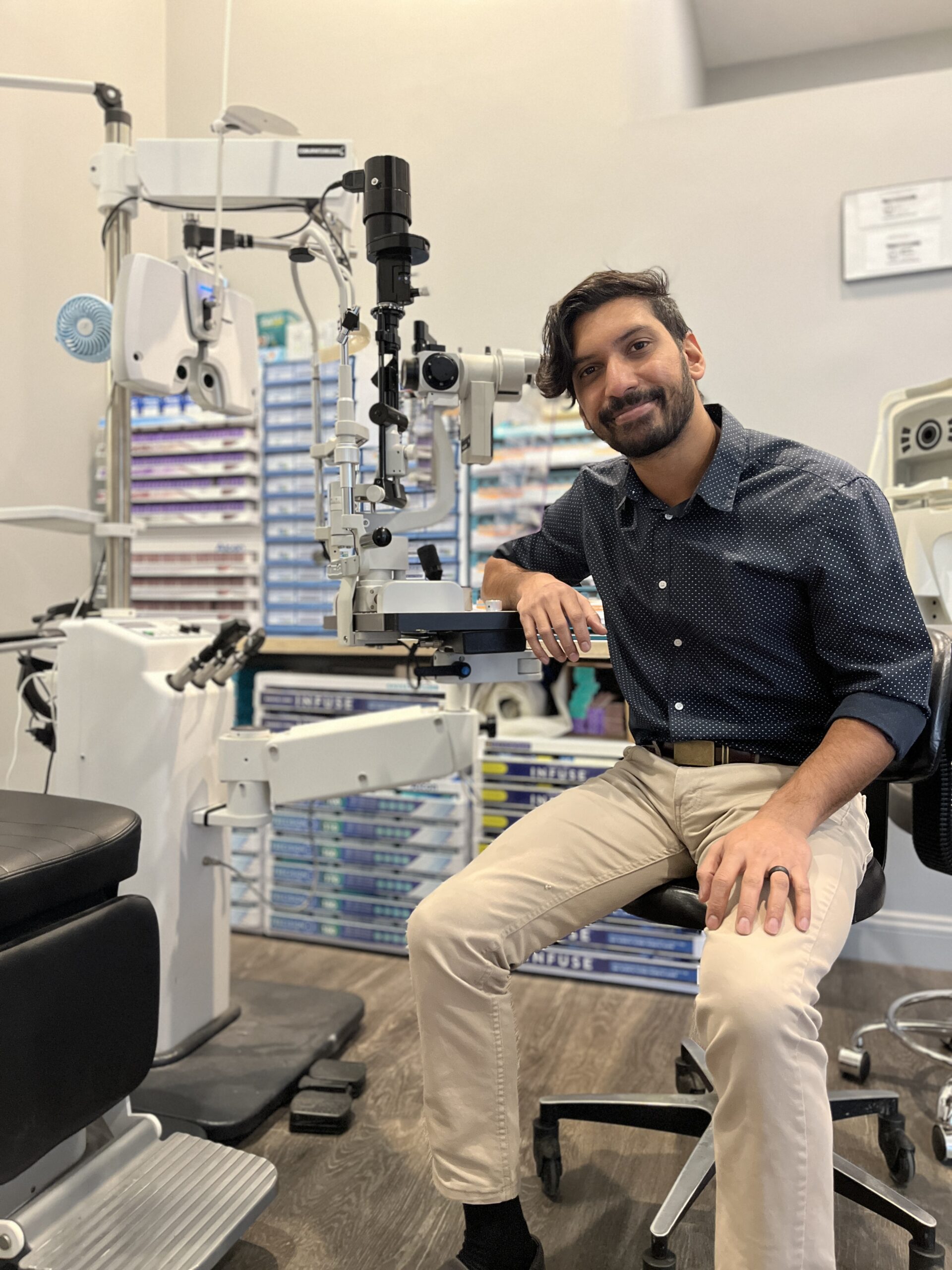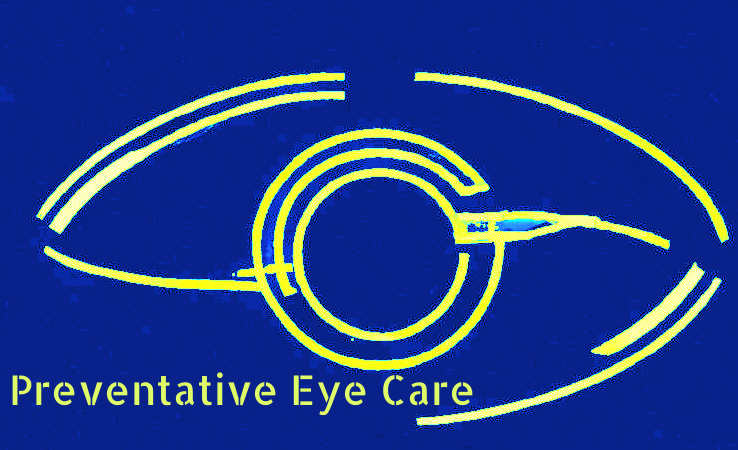About Our Doctors
Dr. Rae Huang, OD MS IACMM

Hi, my name is Dr. Rae Huang, OD and I knew that I wanted to be an eye doctor since I was 12. My mother, Dr. Haiyan Gong, MD, PHD, is a world renown ophthalmologist who gets invited all around the world to talk about her research, and she used to take me with her. She resides in the world of academia, where she is very well published. I should know. I have been proof reading her publications for spelling and grammar mistakes since elementary school because English is not her first language.
As far as eyes go, she is the most knowledgeable person I know. And growing up with her I couldn’t help but absorb some of that knowledge. When she was teaching anatomy at the New England College of Optometry when I was 8, I watched her dissect the heads of cadavers and label the cranial nerves with colorful pins. I practically grew up in her lab in Boston Medical Center, where the fridge was full of eyeballs in jars and I got to play with her fancy confocal microscopes and watch keratocyte cells migrate to heal wounds in the corneal epithelium. I actually did a project on this and entered it in the Lexington High School Science fair as a freshman and won!
But the world of academia is small, and the general population doesn’t get their information from NIH studies. I learned this recently, when a company trying to come up with a new treatment for amblyopia (lazy eye) asked me to be part of both their doctor focus group as well as their parent focus group, since I am both the parent of a child with amblyopia as well as a doctor that treats it. The doctor focus group went great and the company really loved my insights as a doctor. But the parent focus group was awful. I was alarmed to learn that most of the parents were getting their medical advice from parenting blogs. So, I was trying to explain to the rest of the parents why they should look for double blind peer reviewed studies when it comes to the health of their children’s eyes when the mediator sent me a private chat message through zoom telling me to act like I’m a parent not a doctor because I was making the other parents feel bad.
But I kept trying to explain that even as a parent, I prefer to trust medical treatments that had gone through a peer reviewed study published by a reputable source. And the response I kept getting from all of the other parents was that they didn’t trust science and would rather make decisions based on real influencers sharing their feelings.
So, I decided to start to blog on my practice website to educate people about preventative eye care to prevent common eye care conditions such as myopia and dry eye.
l currently see patients at two private practices in South Boston and Newton. I received my Masters in Vision Science and my Doctorate in Optometry from the SUNY College of Optometry in New York City, where I graduated with honors as the President of the Beta Sigma Kappa Optometric Honor Society. I obtained my undergraduate degree from Boston University, where I graduated Magna Cum Laude with a double major in Biology and Psychology.
I specialize in preventative eye care techniques such as Orthokeratology, in which I design contact lenses that correct patient’s vision while they are sleeping, so that they can see all day without glasses or contacts. These lenses also prevent myopia by acting like a retainer or braces for the eyes. I am passionate about fitting these eye braces on children to prevent their prescriptions from becoming myopic due to digital device use, which is predicted to cause half the world population to become myopic by 2050. Since increased myopia can increase a patient’s risk of cataracts, glaucoma, retinal detachment, and myopic macular degeneration, I believe that these lenses can help prevent the risk of these eye diseases in the future as well.
I have three kids and have fit all of them into orthokeratology lenses to prevent them from ever needing glasses in the future, a technique that I practice regularly on my pediatric patients.
I am a member of the American Academy of Orthokeratology and Myopia Control and have attained the International Academy Certification in Myopia Management (IACMM), a qualification to practice Myopia Management to the highest degree.
In addition to designing custom specialty contact lenses for Orthokeratology, I also specialize in designing custom specialty scleral lenses for patients with Keratoconus and dry eye.
I also specialize in preventing and treating dry eye with techniques like the Lumenis Optilight IPL, Lumenis Trilift, Lipiflow, Tearcare, BlephEx, and Ocusoft Thermal 1-Touch.
The Lumenis Optlight IPL and Trilift procedures can also be performed as aesthetic treatments to prevent and remove wrinkles and give patients a non-surgical face lift, which also opens their eyes wider when their lids start to droop with age.
I also specialize in Vision Therapy techniques such as the VTS3 computer orthoptics system to prevent blur and double vision from convergence and accommodative disorders.
Outside the office, I enjoy rock climbing, singing, figure skating, and skiing.
In the Press:
An Eye on Alumni: Dr. Rae Huang ’13 – SUNY College of Optometry (sunyopt.edu)
https://www.optometrystudents.com/the-abcs-of-treating-glaucoma-medically/
https://www.optometrystudents.com/american-academy-optometry-boston-2011/
https://www.optometrystudents.com/font-size-viewing-distance-on-smart-phones-students-at-suny-preform-study/
Dr. Vivek Mallampalli, OD

Welcome! I’m Dr. Mallampalli, an optometrist practicing in and Newton. Since graduating from the New England College of Optometry in 2019, I’ve enjoyed helping patients with their primary eye care needs and have developed a special interest in myopia prevention, specialty contact lens fitting, dry eye treatment, and vision therapy. My background includes experience in both general and ocular disease-focused practices. Originally from San Diego, CA, I have earned a BS in Physiology and Neuroscience from UC San Diego. Outside of the office, you might find me playing music or rock climbing. Book your appointment – I look forward to helping you!

